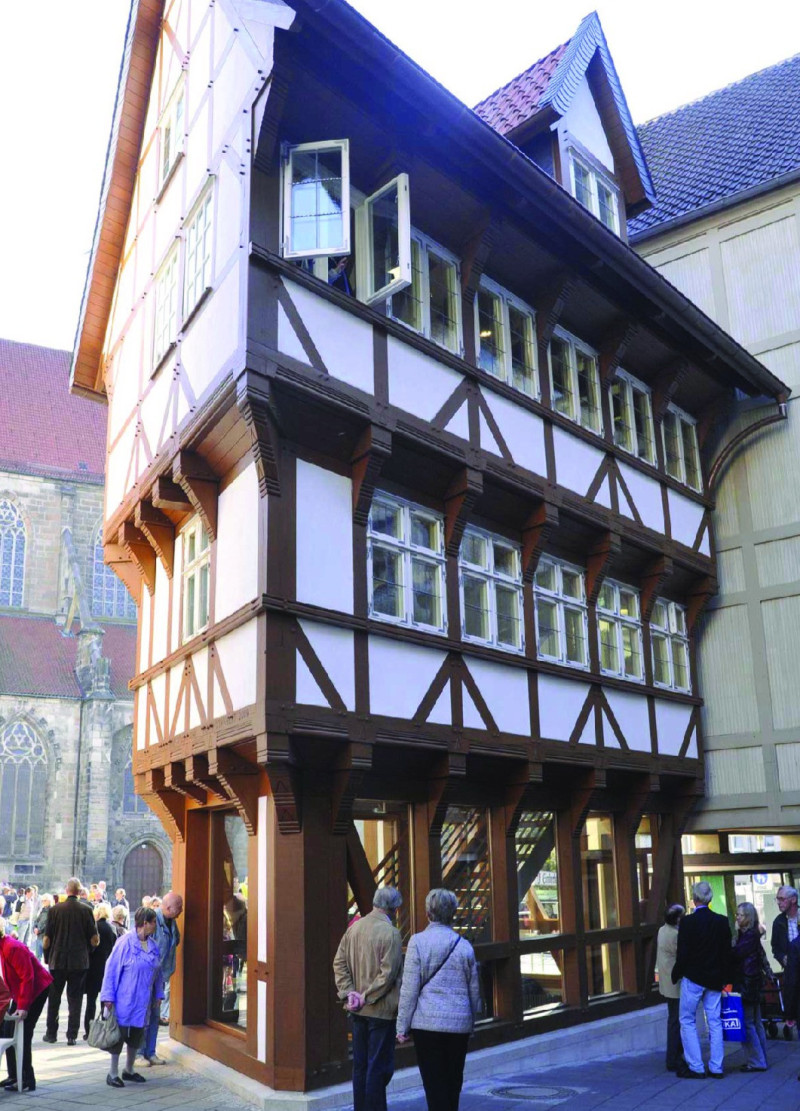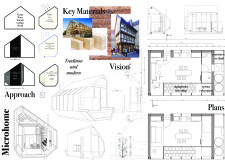5 key facts about this project
The design showcases a microhome concept that prioritizes sustainability and functionality in an urban landscape. It integrates systems for energy generation, water management, and food production. The overall design reflects a thoughtful response to the needs of modern living while remaining sensitive to environmental issues. The aim is to create a self-sufficient home that blends with its surroundings and provides a comfortable living space.
Energy Generation
The microhome utilizes photovoltaic systems to collect solar energy. This method reduces reliance on conventional power grids. A crucial element in this setup is the Tesla Powerwall, which stores energy for later use. Together, these components support a commitment to sustainable energy solutions and efficiency in everyday functioning.
Water Management
Water resources are managed through a rainwater treatment system that features a constructed wetland and a reverse osmosis plant. This innovative approach ensures clean water for household needs while minimizing environmental impact. The strategy showcases a practical way to cope with urban water shortages and highlights the importance of sustainability in residential design.
Food Production
Food production is an important aspect, with the layout designed to accommodate aquaponics breeding and sprout cultivation. This system can provide up to 50% of the food needs for residents, emphasizing a strong focus on local food sourcing. By enabling short supply chains directly within the home, this element helps build a sense of self-sufficiency for the inhabitants.
Spatial Configuration
The interior layout favors comfort and functionality, with well-planned spaces that encourage efficient use. The arrangement of the kitchen and storage areas creates an inviting atmosphere. Open spaces allow natural light to flow easily, enhancing the overall warmth of the home. This careful organization ensures that living in a small footprint does not compromise the quality of life.
The design thoughtfully incorporates natural light and a connection to outdoor spaces, creating an environment that feels alive and welcoming.


















































